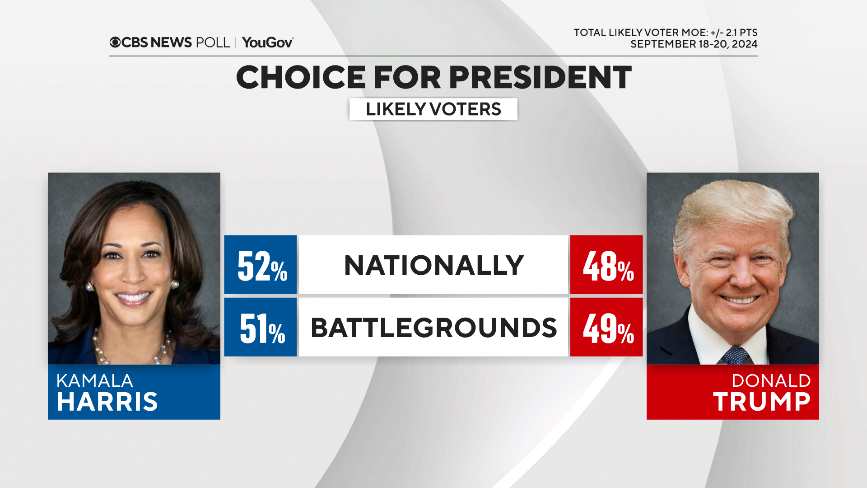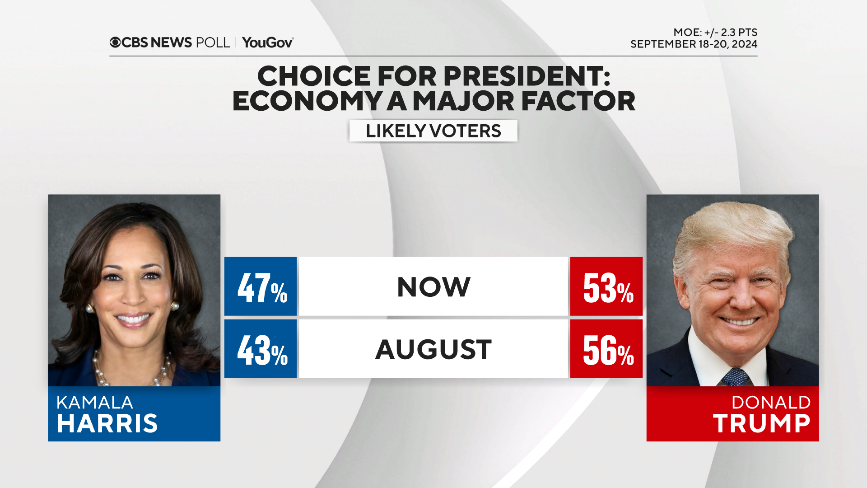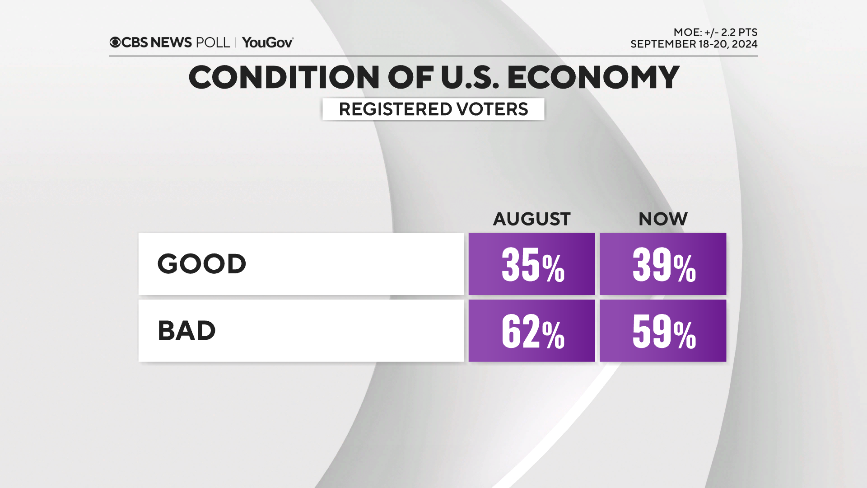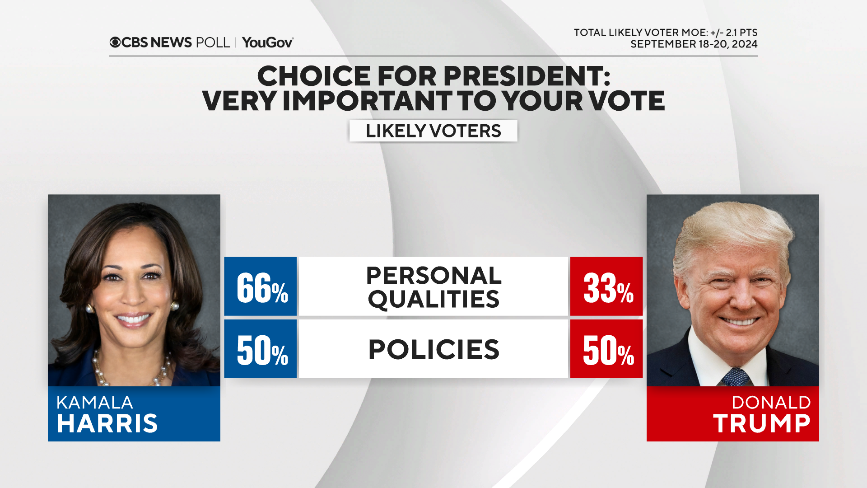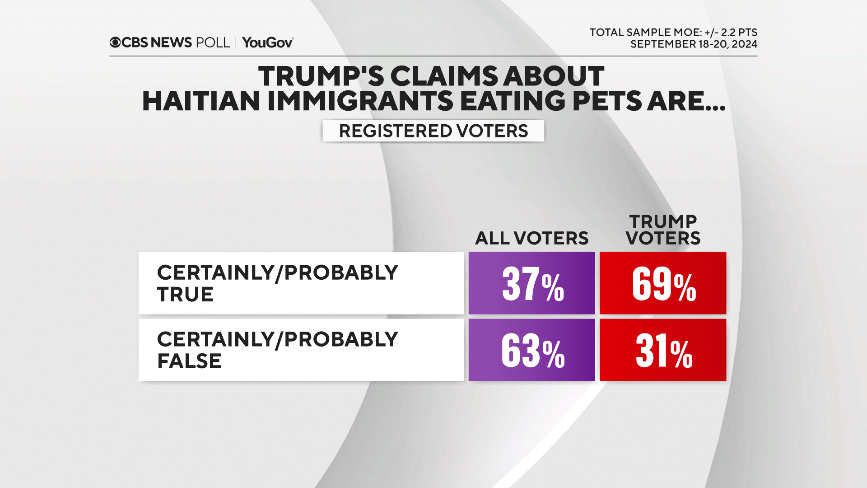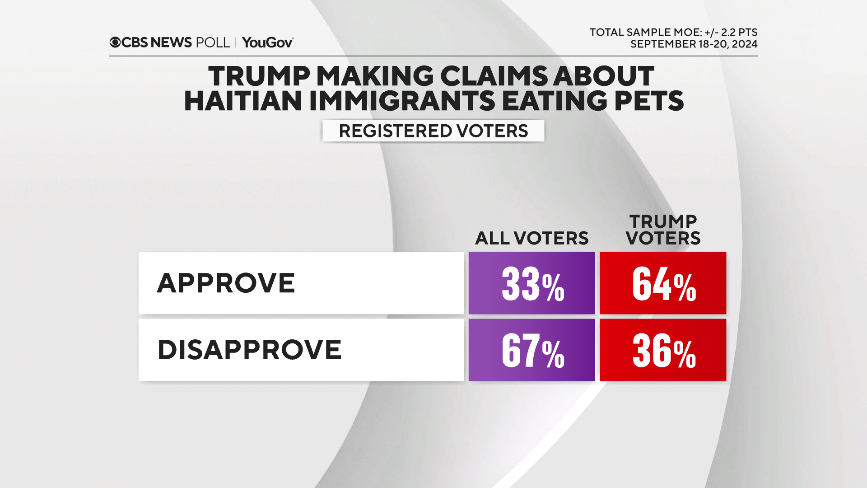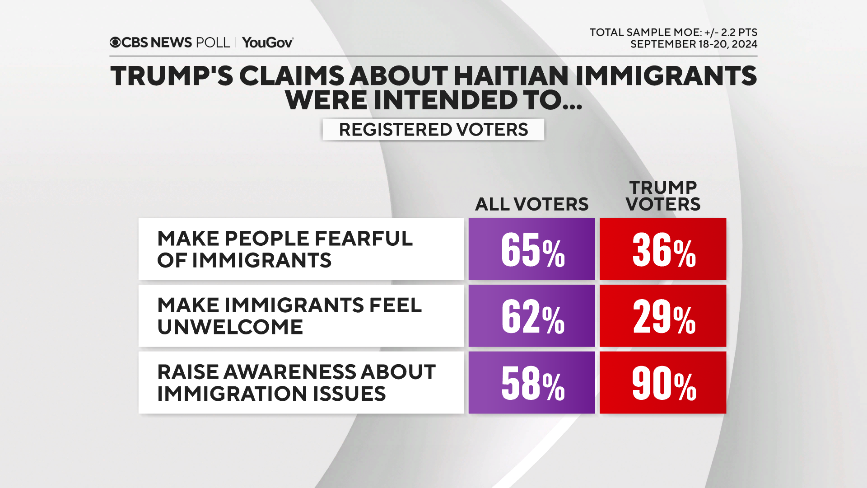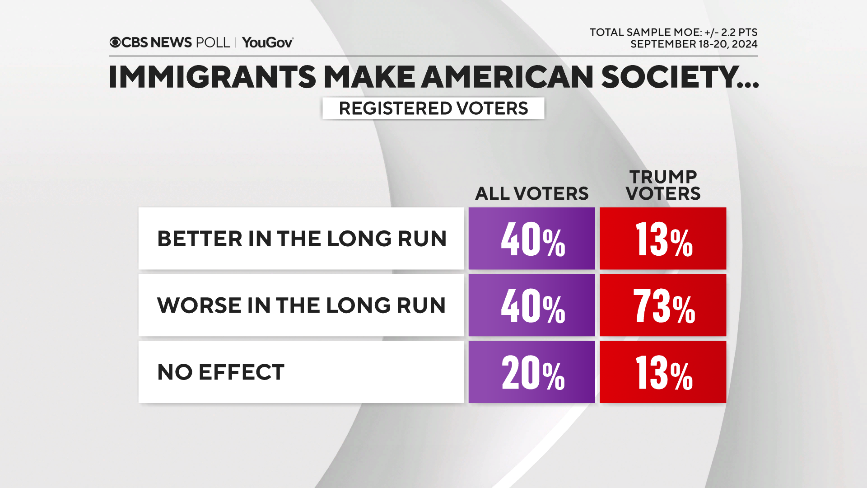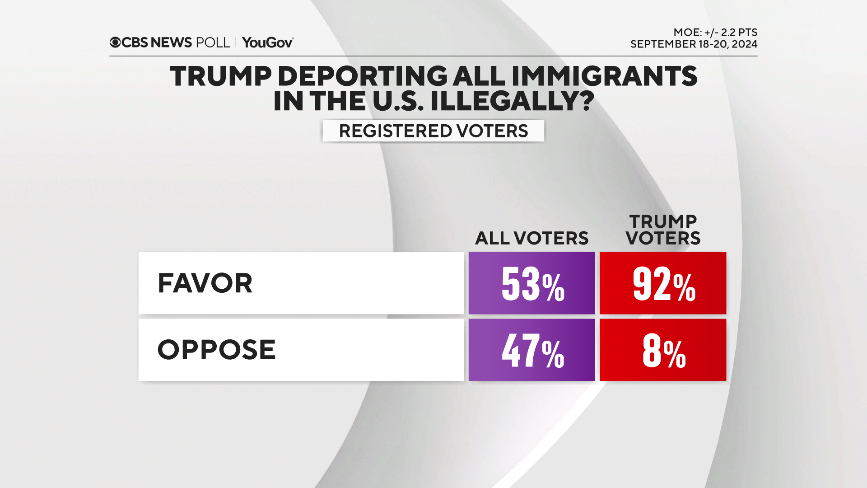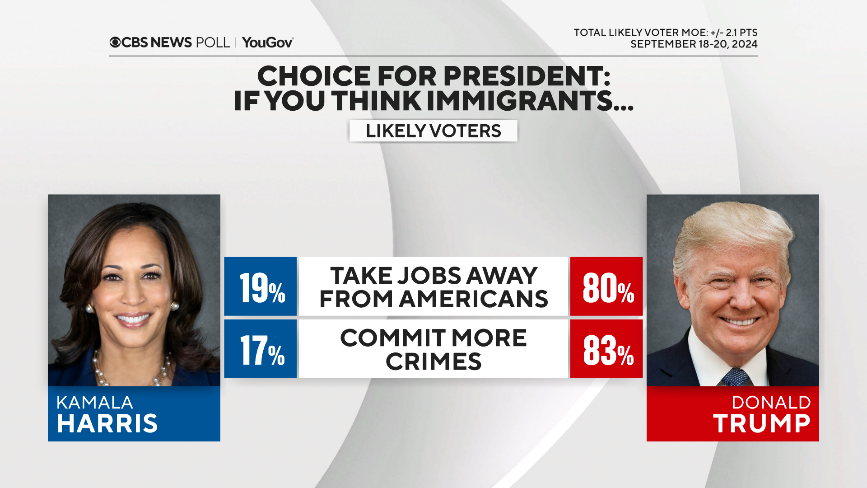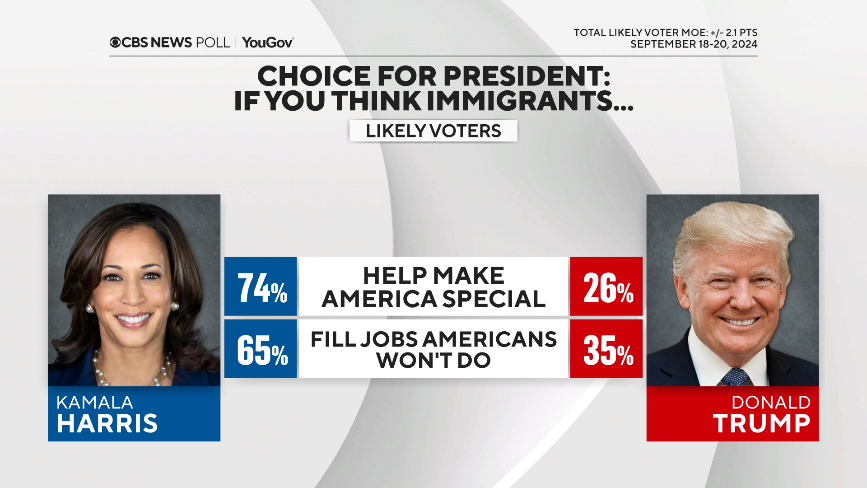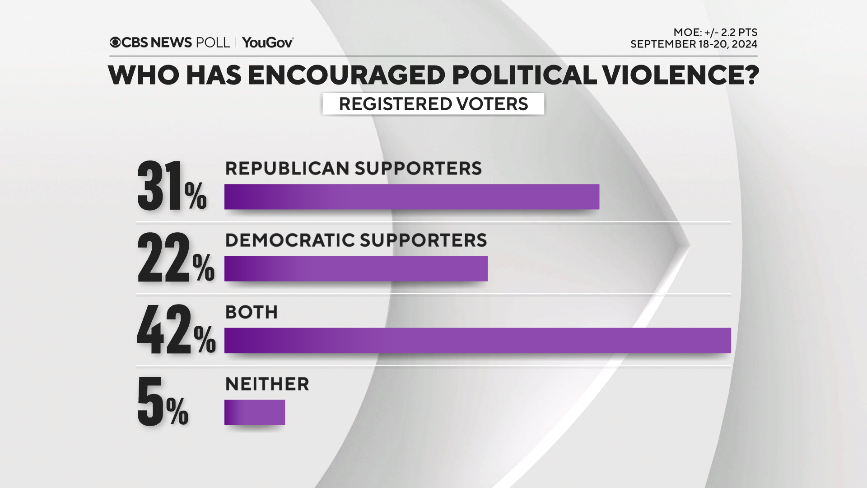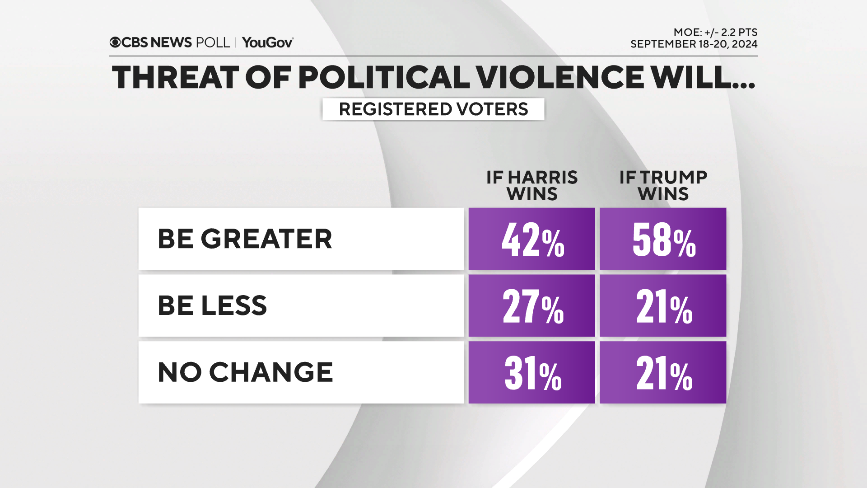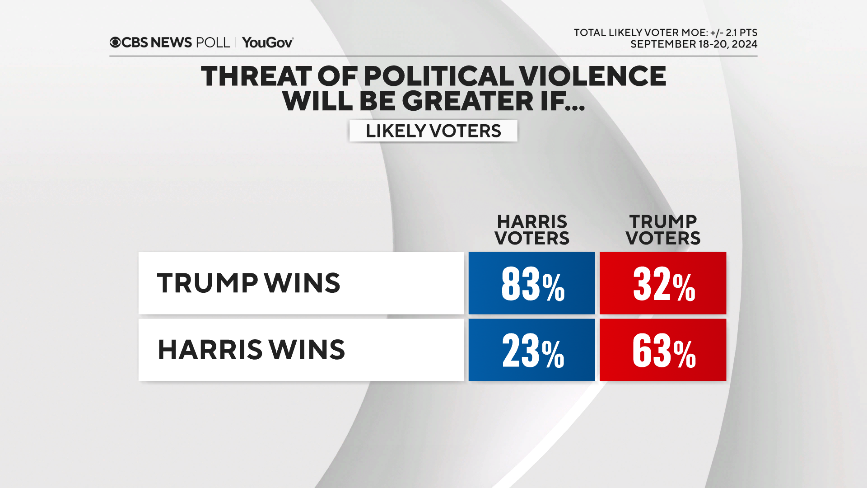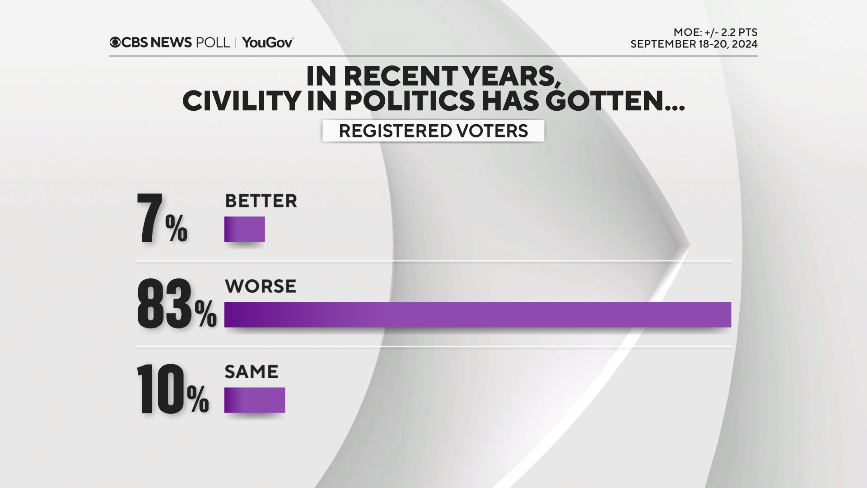The 2024 presidential race clearly remains a contest either Donald Trump or Kamala Harris can win, CBS News’ latest polling finds.
But with interest rates and gas prices coming down, the number of voters saying the economy is good has ticked up. That, along with a debate voters say was net positive for her, has helped Harris a bit.
The vice president has now moved to the slightest of edges across the battleground states (it was 50-50 last month), and she is now up 4 points nationally over Donald Trump.
Harris does better with voters who have a positive view of the national economy and of their own personal financial situation.
And she wins voters who say the economy is at least getting better, if not good right now. She wins voters who specifically say gas prices around them are going down.
The challenge that remains for her, though, is that despite the improvement, many voters still don’t think things are good. And the ones that don’t are voting for Trump.
But in all, Harris has narrowed her deficit with Trump among those who call the economy a major factor.
The debate appears to have helped firm up her support: among those who said the debate made them more likely to back her, almost all voted for President Biden in 2020.
Voting on personal qualities or policies
After the debate, impressions of the candidates show sharp divisions in the electorate.
People who prioritize the personal qualities of a candidate are voting for Harris — she far outpaces Trump on being personally liked.
Those who say policies are very important are evenly split between them.
And a lot of Trump’s voters don’t like him personally, but do prioritize policies over the personal qualities.
Trump’s base remains with him, and that support includes approval of what he claimed about immigrants eating pet dogs and cats.
Most voters think the claims about eating pets are false, but a large majority of Trump backers says they’re probably true or certainly true. (The claims have been debunked.)
Voters mostly disapprove of Trump making these claims, but two-thirds of Trump voters approve of his doing so.
But they qualify it as “probably” more than “certainly” true, and that designation may signal something less literal. His backers see him as speaking to what they consider a larger issue, that of immigration and its impact on the country.
More generally, Trump’s voters overwhelmingly see immigrants in general as making American society worse, and would overwhelmingly favor his idea of deporting those in the U.S. illegally, an idea that also finds favor with over half of voters overall.
Perceptions of immigrants generally sharply divide the coalitions: Trump wins voters who believe immigrants commit more crimes, and take jobs from citizens; Harris wins voters who think immigrants fill jobs Americans won’t do, and are part of what makes America special.
Violence and threats to democracy
More voters say supporters of Republicans have been engaged in rhetoric that might encourage violence than say so about Democrats’ supporters. But the largest single sentiment is that such rhetoric comes from “both” sides.
The apparent Florida assassination attempt against the former president probably galvanized some Trump support, in that those who say it made them more apt to vote for Trump had overwhelmingly already backed him in 2020.
Neither side has much optimism if they lose: Most Harris supporters think the nation will see a higher threat of violence if Trump is elected, and most Trump backers think the nation will see higher threats if Harris is.
Either way, both sides think the overall tone and civility in American politics has gotten worse.
Political violence speaks to the idea of democracy more widely, part of which is the idea that people can settle differences peacefully through a process.
Both sides do think democracy is generally threatened, but this has been the case in our polling for some time and is not new in this campaign.
This CBS News/YouGov survey was conducted with a representative sample of 3,129 registered voters nationwide interviewed between September 18-20, 2024. The sample was weighted according to gender, age, race, and education based on the U.S. Census American Community Survey and the U.S. Census Current Population Survey, as well as past vote. Respondents were selected to be representative of registered voters nationwide. The margin of error for registered voters is ±2.2 points. Battlegrounds are AZ, GA, MI, NC, NV, PA, and WI.
